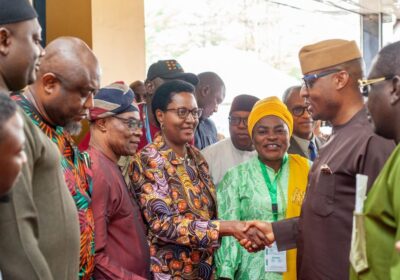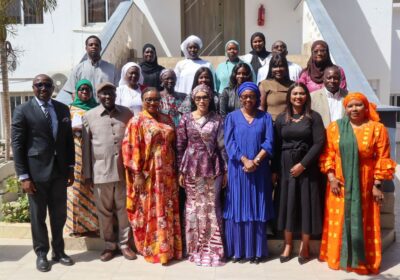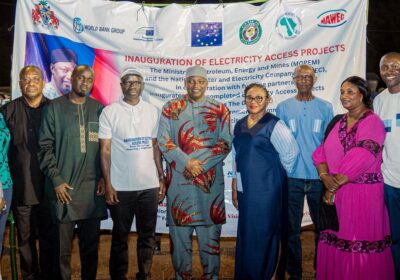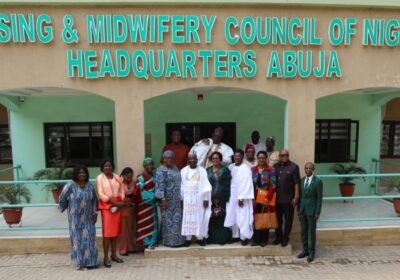Experts at 2024 Conference Call for Intensified Efforts to Combat Tuberculosis in Nigeria”
By Raymond Enoch
The 2024 Tuberculosis (TB) Conference held in Abuja, Nigeria, was more than just a gathering of healthcare professionals, it was a Clarion call to action, urging both local , Sub Regional and international communities to step up the fight against TB. The conference highlighted Nigeria’s remarkable efforts in combating tuberculosis, particularly in the face of challenges like the COVID-19 pandemic, while also emphasizing the crucial role of community involvement, media awareness, and reducing stigma in TB prevention and treatment.
Resilience and Commitment: Nigeria’s Unseen Victory
The National Coordinator of the African Coalition of Tuberculosis (TB) in Nigeria, Ibrahim Umoru, took center stage during the TB Affected Community and Civil Society Dialogue at the conference, where he made a compelling case for the critical role communities play in fighting TB. Umoru was quick to point out Nigeria’s extraordinary resilience, especially during the global health crisis caused by the COVID-19 pandemic. While TB programs in many other countries faltered, Nigeria’s efforts surged forward, even exceeding set targets for TB diagnosis and treatment.
“While the world struggled with the disruptions brought on by the pandemic, Nigeria was able to adapt and innovate, ensuring that our TB response not only continued but thrived,” Umoru shared with optimism. His words struck a chord with the audience, as they reflected on Nigeria’s ability to push past adversity and continue its TB treatment programs despite global setbacks.
However, despite these accomplishments, Umoru emphasized that the war against TB is far from over. He insisted that TB is not a disease confined to hospitals or medical facilities alone; it is a community issue that requires the involvement of every individual. “We cannot remain silent in the face of TB. It’s a community problem and we must act as one,” Umoru declared. This message resonated throughout the conference and was seen as a powerful rallying cry for collaboration across sectors.
The Media’s Vital Role: Raising Awareness and Combating Stigma was
one of the most significant points raised during the conference
The role of the media in tackling TB stigma. Dr. Bolatito Ayenigba, the Deputy Project Director for Tuberculosis at Breakthrough Action Nigeria, emphasized the media’s power to shape public perception and help reduce the stigma surrounding TB.
According to Ayenigba, the media’s role is indispensable in spreading correct information and dispelling harmful myths.
“The stigma associated with TB remains a significant barrier to effective treatment,” Ayenigba explained. “Unlike conditions like hypertension and diabetes, TB is curable and treatable. However, the social stigma still attached to it is a major deterrent for many people seeking treatment.”
Ayenigba’s point about stigma was not limited to society’s external views on TB patients, but also highlighted a crucial internal issue, self-stigma. Many TB patients, especially in Nigeria, internalize the societal prejudice, leading to feelings of shame, isolation, and reluctance to seek help. This, Ayenigba argued, can worsen both the physical and mental health of the patient.
“Not only does this stigma come from the outside world, but it also exists within the individual themselves,” Ayenigba said. “This self-stigma can be devastating, affecting a person’s mental health, their ability to work, and their overall well-being.”
The Deputy Project Director’s words added weight to the argument that in the fight against TB, reducing stigma is just as crucial as increasing access to healthcare. She called on journalists to intensify their efforts to raise awareness on TB, educating the public about the disease’s curability and encouraging those affected to seek help without fear of discrimination.
The Call to Action: Strengthening Community Involvement
One of the most striking parts of the conference was the focus on grassroots engagement. Several discussions highlighted the need for local communities to be at the forefront of TB awareness campaigns. Experts agreed that, while government and healthcare institutions play a vital role in treating and preventing TB, the involvement of community leaders, religious organizations, and local media can make a significant difference in reaching underserved populations.
As Umoru stated, the government and private sectors need to collaborate more effectively to disseminate information, but it is the local communities where real change can begin. “We need to take TB awareness down to the local level, to rural areas, where misconceptions and lack of information are prevalent,” he urged.
The conference also featured testimonies from individuals and groups directly affected by TB, who shared their stories of how community support had either helped or hindered their journey to recovery. Many expressed how critical it was to feel part of a supportive network during treatment, particularly in fighting the mental and emotional toll the disease takes.
Moving Forward: Unity in the Fight Against TB
The closing ceremony of the 2024 TB Conference was a moment of reflection, but also a call to action. As delegates gathered in the final session, there was a sense of shared purpose, with a unanimous agreement that tackling TB requires a united effort from all sectors of society.
Several key resolutions were passed at the conclusion of the conference, most notably the commitment to:
Increase Community Awareness: By prioritizing community-based outreach and education, Nigeria aims to ensure that all individuals, regardless of their socio-economic status or location, understand the importance of TB prevention, early diagnosis, and treatment.Combat Stigma: Through continued collaboration with the media, the conference urged a nationwide push to reduce the stigma surrounding TB, focusing on encouraging those who may be affected to seek help without fear of judgment. Promote Mental Health Support for TB Patients: Recognizing the psychological toll that TB can take on individuals, there was a clear mandate for integrating mental health services into TB care programs, ensuring that patients have the emotional and psychological support they need during treatment Government and Private Sector Collaboration: The government was called upon to increase funding for TB programs, while the private sector was encouraged to invest in innovative solutions that could enhance TB care and prevention efforts.
As the conference concluded, attendees were reminded of the important role that each one of them plays in the fight against TB. Whether as a healthcare worker, a journalist, or a community leader, everyone has a part to play in eradicating this disease. Nigeria has already shown the world what can be accomplished when determination and innovation are put to the test, but as Umoru aptly stated, the job is not done.
“We have the knowledge, the tools, and the determination. Now, we need every Nigerian, every community, every individual, to stand up and be part of the solution. Together, we can end TB,” Umoru said, his voice echoing the collective resolve of all those present at the conference.
The 2024 Tuberculosis Conference in Nigeria was a resounding success—a reminder that with the right strategies, collaboration, and community engagement, TB can be defeated. It was a call to action, urging everyone to unite in the fight against a disease that affects millions, but can be beaten with the power of awareness, compassion, and community.









